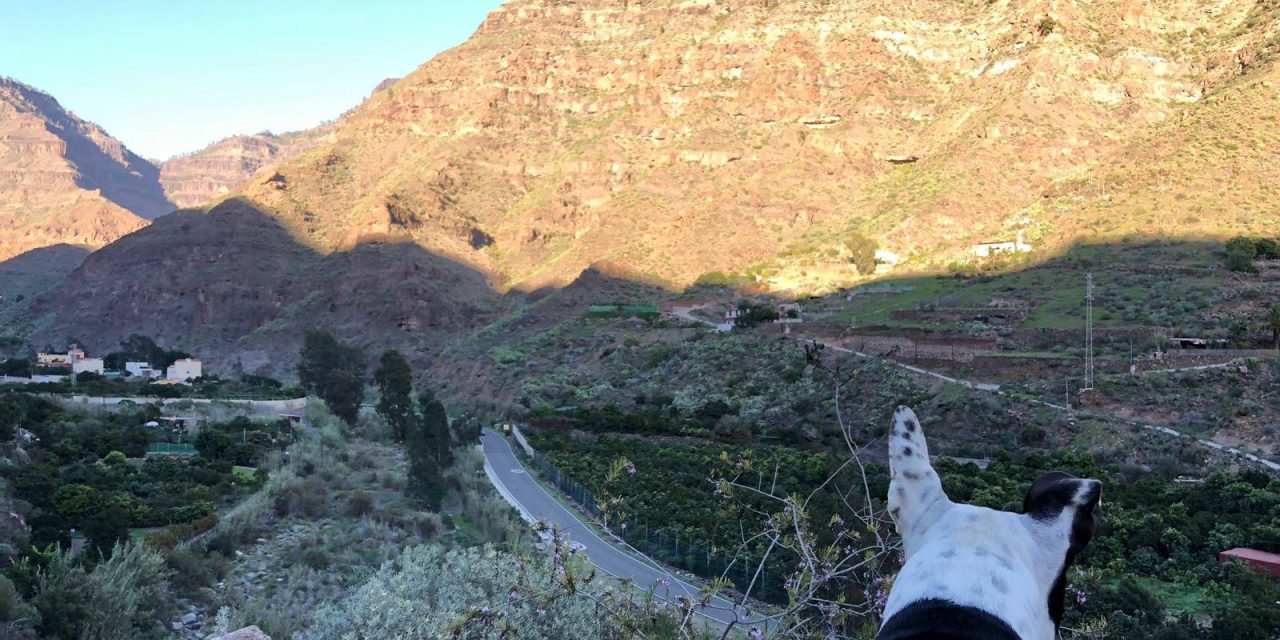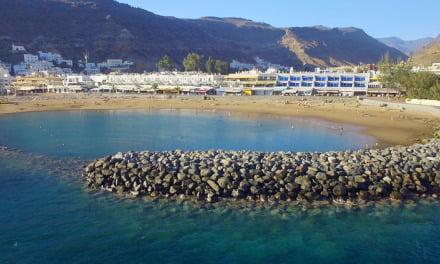 A new law is being brought into force on the north of Gran Canaria, forbidding citizens from leaving any animal inside a parked car for more than 20 minutes, or from leaving them tied up for more than two hours. The far reaching and progressive new municipal ordinance also outlaws the use of animals in public shows and their use in films when they may suffer injury, as well as prohibiting their entry into public buildings, the killing pigeons, raffles in which animals are offered as a prize, and forces owners to carry water and waste bags to remove excrement and urine while they are taken on their walks. The Municipal Council in Guía is processing this new ordinance to regulate the protection and possession of animals, replacing the previous one, which had become “obsolete”.
A new law is being brought into force on the north of Gran Canaria, forbidding citizens from leaving any animal inside a parked car for more than 20 minutes, or from leaving them tied up for more than two hours. The far reaching and progressive new municipal ordinance also outlaws the use of animals in public shows and their use in films when they may suffer injury, as well as prohibiting their entry into public buildings, the killing pigeons, raffles in which animals are offered as a prize, and forces owners to carry water and waste bags to remove excrement and urine while they are taken on their walks. The Municipal Council in Guía is processing this new ordinance to regulate the protection and possession of animals, replacing the previous one, which had become “obsolete”.
Guía have also announced a new tax regulation for the registration and issuance of licenses, valid for up to 5 years, for the possession of dangerous animals, which increases the rate from 18 to 30 euros, and which updates the amounts they have had in force since 2000.
The new municipal ordinance is open to public consultation and objections until the end of January. The purpose of the new text “is to establish the norms that regulate the protection and possession of animals, whether for profit, sport or recreational purposes, guarantee responsible tenure, reduce losses and abandonment, encourage citizen participation for their defence and protection, as well as teaching respect for animals and the importance of their adoption, so as to preserve the health, tranquility and safety of people”.
The document states that pets can only be kept tied in a fixed place, for justified reasons, for a maximum of two hours. In the case of puppies, the time must not be exceeded, and the ties must measure more than two meters long.
 In public or private spaces in common use, pets must always be accompanied and wear a collar or harness with chain, or strong rope that allows control of the animal.
In public or private spaces in common use, pets must always be accompanied and wear a collar or harness with chain, or strong rope that allows control of the animal.
The Town Council is also to prohibit the keeping of animals, and overnight stays, in uncovered areas of buildings such as on terraces, roofs, balconies, interior courtyards, or in common areas, storage rooms or garages, in any case they must spend the night inside a building, house or apartment.
Animals cannot be left in parked vehicles for more than 20 minutes, and always with appropriate measures to ensure air flow, hydration and appropriate temperatures are maintained to ensure the health of the animal.
Regarding sanitation the new law emphasises, that “when an animal makes depositions in any space, authorised or not, both public and private, the person [responsible for the animal] it is obliged to proceed to its immediate cleaning and, in the case of urine, take the appropriate measures to minimise its presence by diluting it with water, and not allowing them [to go to the toilet] on the facades of buildings, monuments, street furniture and ornamental elements”. The law continues by stipulating that “people who walk animals must carry bags or other elements for the removal of excrement as well as a container of water of an appropriate volume to dilute any urine that is deposited.”
 Except in the case of guide dogs, owners of public establishments and accommodation may prohibit entry to animals. Of course, this decision must be displayed clearly with visible signage. The law prohibits access of domestic animals to public buildings, any use of animals in shows, films, advertising activities, cultural or religious activities and any other activity, whenever it may cause damage or suffering, it prohibits the use of animals in fights, public attractions, fairs with live animals tied up, as well as the public slaughter of animals, pigeon shooting and other similar practices.
Except in the case of guide dogs, owners of public establishments and accommodation may prohibit entry to animals. Of course, this decision must be displayed clearly with visible signage. The law prohibits access of domestic animals to public buildings, any use of animals in shows, films, advertising activities, cultural or religious activities and any other activity, whenever it may cause damage or suffering, it prohibits the use of animals in fights, public attractions, fairs with live animals tied up, as well as the public slaughter of animals, pigeon shooting and other similar practices.
The use of animals in shows, fights, popular festivals and any other activity that may lead to cruelty and abuse is strictly regulated or prohibited; including the holding of livestock and poultry in public areas or urban centres; and they can not be given as a gift, raffle prize or promotion, nor can they be delivered as any type of business or commercial reward.
Very serious infractions could see fines as high as €15,025.30.













